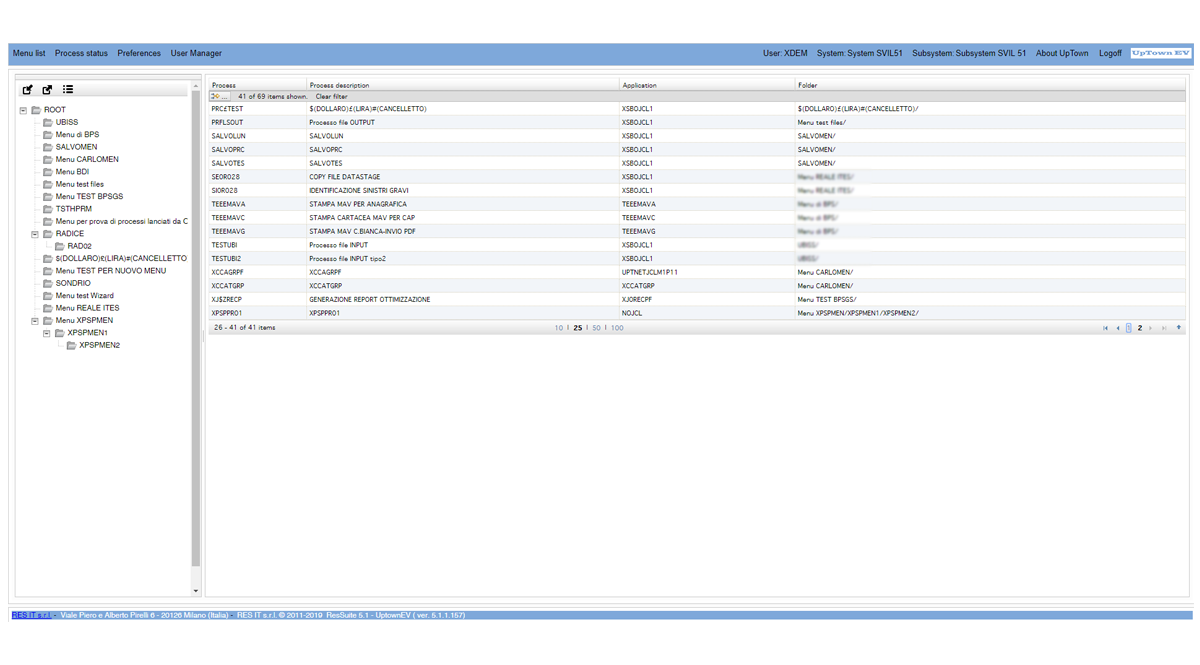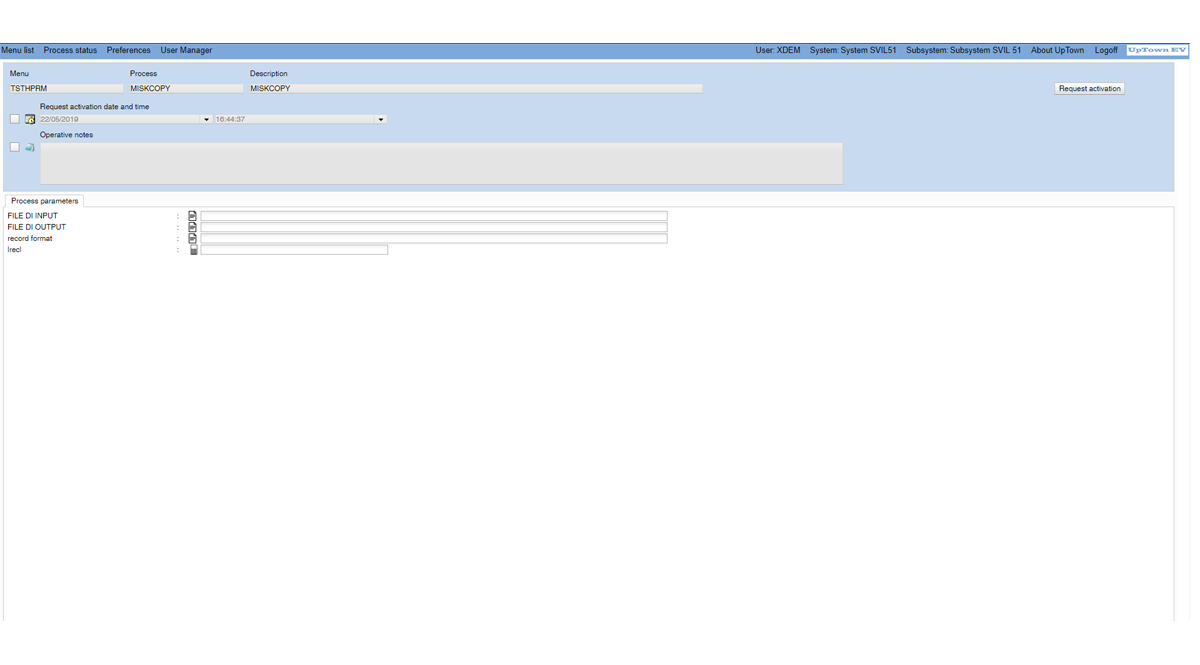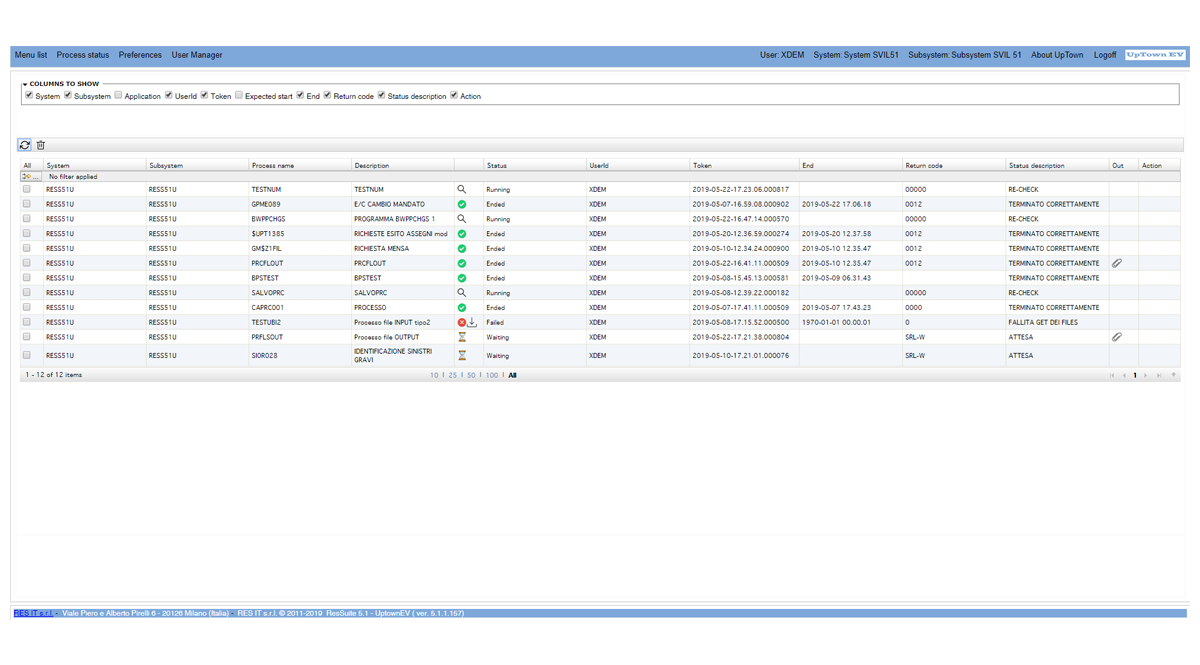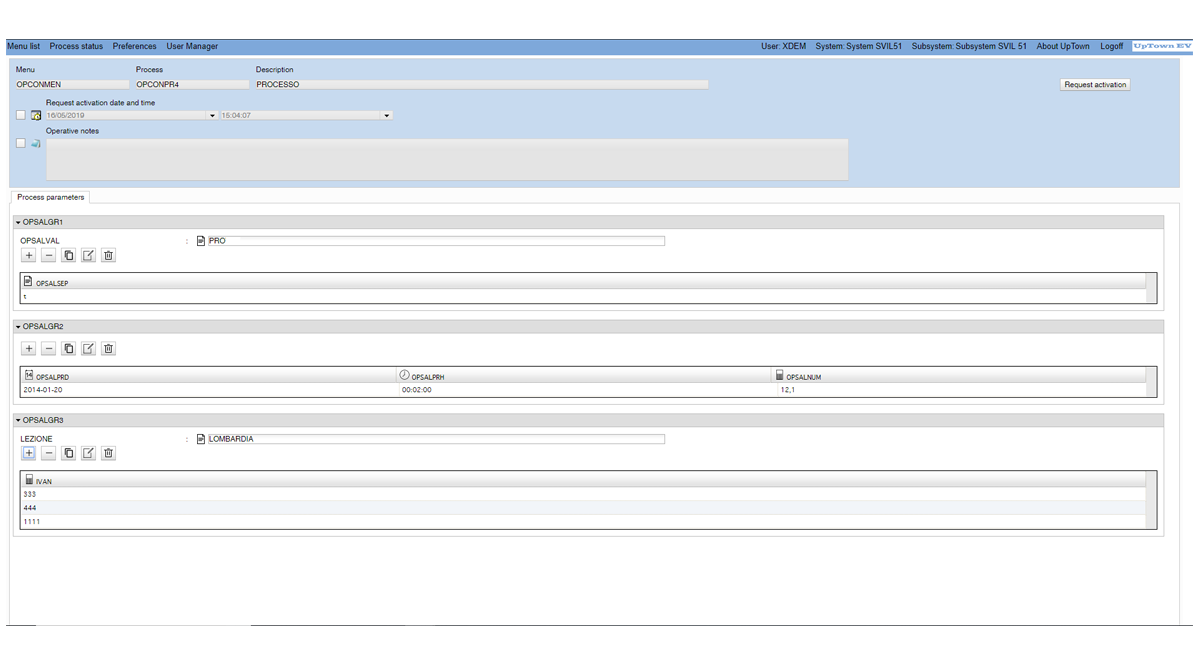UPTOWN/EV
In complex IT organizations, batch processes are typically designed, managed and centrally controlled by a corporate department with specific skills.
This organizational structure presents a number of clear advantages for all the executions which can be scheduled and for which the centralized solution is definitely more suitable, while it is less advantageous for those extemporaneous batch processes for which the end user may have a need, or an urgent requirement, following events which had not been planned.
In these cases, the need to provide unique user-defined parameters, the need to understand about their state once the execution is completed, the complications inherent in sending and receiving data related to the manual processing, are real organizational problems that often lead to user dissatisfaction and additional work for the management staff.
A scenario of this type highlights a strong requirement for end-user autonomy that is contrary to the roles and responsibilities defined in otherwise typical operational processes.
Beyond the organizational aspects, granting individual autonomy to the end user in the execution of their own batch processes requires special training and technical abilities typically beyond their normal business role.
Therefore, the problem remains with interfacing these batch components and integrating them within portals or, better yet, in the client applications.
THE UPTOWN/EV SOLUTION
To meet these needs, client often resorts to “in house” developed solutions which may be incomplete, costly in terms of maintenance and/ or provide inadequate user interfaces.
The RES multi-platform UpTown/EV solution allows:
- Administrator: to define the processes, parameters and algorithms for providing values and authorizations
- User: to perform their request for processing by providing, in a controlled manner, parameters and files
- To provide an easy and flexible way to control the outcome of the processing and for receiving the user’s output
- Perform all activities on z/OS systems, Unix, Linux and Windows systems
- Interfacing with all the commonly used automated scheduling tools for the submission of on demand and on request batch




UPTOWN/EV OBJECTIVES AND FUNCTIONALITY
UpTown/EV has a very flexible architecture that allows it to adapt to any client I.T. configuration, from the simpler mono-platform and mono- system to the most complex, multi-platform and multi-systems, as well as to any type of business organization.
UpTown/EV consists of three main components:
- The administration and design component that allows the user to define the characteristics of:
- Batch processes (also organized into functional groups or for LOB)
- Parameters (possibly organized into “parameter sets” for which the administrator can specify formal characteristics, possible defaults and any formulas
- The characteristics dedicated to specific end users::
- Research and selection of the desired on-demand proces
- Controlled parameter input
- Process submission
- Control the outcome of the processing
- Bidirectional exchange of data files between the user and the applications
- The component which, interfacing with various systems and various scheduling products, analyzes user requests and proceeds with the management of those processes controlling their status.
The product interfaces with all the more commonly used Identity and Access Management systems or alternatively, it can activate its own internal control functions and ensure a successful life cycle of processes and parameters thanks to an effective system of import/export definitions that interfaces easily with various change management systems.
All UpTown/EV capabilities for the application and monitoring of batch processes are also available as web services and SOA, therefore providing an easy introduction into enterprise portals and web applications user requests and proceeds with the management of those processes controlling their status.The product interfaces with all the more commonly used Identity and Access Management systems or alternatively, it can activate its own internal control functions and ensure a successful life cycle of processes and parameters thanks to an effective system of import/export definitions that interfaces easily with various change management systems.The tool interfaces with the operating systems for IBM z/OS, Unix, Linux or Windows platforms. In the area of cross-platform installations, its various instances coexist and cooperate with each other and can handle the launch of processes both through or without automated scheduling systems.
BENEFITS
- Drastic reduction of the time between the request and execution for on-demand requests
- Reduce the time it takes for the operations staff to manage end-user requests
- Reduce the time it takes for the end-user to perform on-demand executions
- Reduce the use of resources arising from the decrease of executed jobs (increase of on-demand processing vs scheduled everyday executions)
- Elimination of the costs of management of in-house developed solutions
- Ability to control and charge for on- demand processing costs in specific areas.




